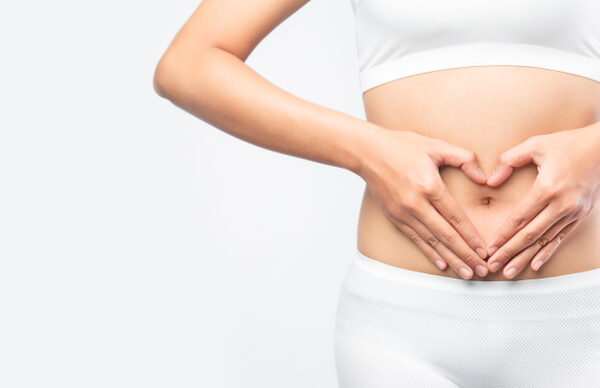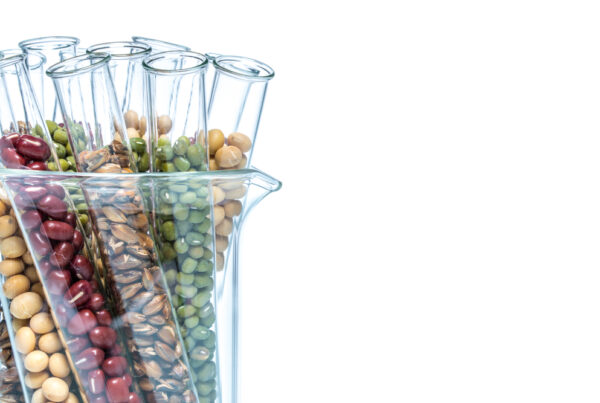Before we can talk about the physiological effects of fasting, we need to define what we mean when we use the word ‘fasting’. There may be some misunderstandings around the definition of fasting and its subsidiaries, and it makes a big difference when we understand the nuances between them and how they may affect our biochemistry differently.
Fasting = No food at all. No MCT oils, ketone supplements or other. It includes water, and may include black coffee and black tea. Anything that would ‘break’ a fast such as carbohydrates, fats or proteins are not allowed. As simple as that.
Time-Restricted Eating (TRE) = Time of food access is restricted but without caloric restriction. An example would be eating food within an 8 hour window during the day, but fasting for the remainder of the day, ie 16 hours.
Intermittent Fasting = Very similar to Time-Restricted Eating in that there is no eating for a prolonged period of time during the day, but usually restricts calories as well.
Many people report interesting changes in their body when they start to incorporate fasting methods into their daily lives, especially if they are doing it for the first time, trying to improve outcomes of chronic health conditions, and are not fat-adapted.
FASTING MAKES MY THYROID MARKERS LOOK BAD
We address this in our article ‘Is Fasting Bad For Your Thyroid?’ Insert link here
FASTING DECREASES MY SEX DRIVE AND TESTOSTERONE LEVELS
During reduced caloric intake (fuel intake) such as with fasting your body makes a decision where to allocate the limited fuel for energy production. All cells need energy or ATP to function, but some organs or tissues will have higher priority than others.
Vital organs such as the brain and heart will certainly get preferential treatment, with the kidneys, liver and immune system probably next on the list. It is safe to say that our sex organs will be right at the bottom of this list.
It makes sense that during prolonged fasting or calorie restriction less energy will be allocated towards the sex organs in both men and women, which means libido is likely to drop in both sexes.
If you feel this is a problem then stop doing what you are doing or modify it. Change your fasting and feeding windows and see what makes a difference. We are all different. We all respond different to dietary and environmental changes.
I GET HEADACHES DURING FASTING
This has a lot to do with hydration in the initial stages of fasting or ketogenic diets.
Anytime you fast, or compress your feeding window, or go on a ketogenic diet, you are likely to excrete more sodium. You can mitigate this by adding more sodium to your diet. And not table salt but something a bit more balanced in mineral content like sea salt or himalayan salt. Just ½ – 1 teaspoon of salt per day mixed in some water, broth, protein shake or whatever you are doing.
In a certain genetically predisposed group of people, small changes in blood glucose may alter pain receptors in the brain, leading to a fasting headache, but this is pretty uncommon.
To some extend the Keto Headache is a symptom of the Keto Flu which we discuss below.
I FEEL LIKE I HAVE THE FLU WHEN I FAST OR EAT KETO
This should not discourage you. It is a very common and typical symptom of going into ketosis as a result of fasting or following a ketogenic diet. It is not the flu, it is not making you sick, so don’t worry. It’s called the keto flu or “carb flu” and is a very real thing.
However, this should only last for a couple of days and usually occurs at the very start of these dietary changes. If it lasts longer and gets worse, please see your doctor to rule out any infection.
Some describe it as having withdrawal symptoms from not eating carbohydrates. It is also a result of a switch in energy metabolism that your body has to adjust to. Most people are carb or sugar burners and when this fuel source is not available the body has to switch to using fat as fuel, either from food or from our own fat stores. In a sense your body has forgotten what to do with fat and how to use it, so it gets a bit confused at the start. Those who are more metabolically flexible generally don’t experience the keto flu.
Typical symptoms of the keto flu include:
- Stomach aches or pains
- Diarrhea or constipation
- Dizziness
- Nausea
- Muscle soreness
- Irritability
- Brain fog
- Poos focus and concentration
- Cramping
- Sugar cravings
Make sure you drink enough water during this time. You may also choose to take an electrolyte supplement or try incorporating more fat into the meals you are eating.
MY BRAIN FEELS FOGGY
Your cells, including your brain cells, are used to using glucose or sugar as a fuel source if you have been eating a high carbohydrate diet like most people. The first thing your body will do is burn through the glucose and then the glycogen (stored glucose in muscle cells and the liver). It can take some time before it realizes that sugar is not available anymore and that it needs to use another type of fuel source such as fat.
Be assured that once your body switches to fat metabolism and uses ketones as a preferred energy source over glucose, you will feel really good and your brain will be sharper than ever.
I GET CRAMPS WHEN I FAST OR GO KETOGENIC
It is common to lose some electrolytes such as magnesium, sodium and potassium during a ketogenic diet or any form of fasting. Your body will tend to drop fluid during this time, and as your body excretes water it will also tend to flush out essential minerals needed for optimal brain and cellular function.
Insulin is needed to promote sodium absorption in the kidneys. When you start a low carbohydrate diet or fasting, insulin levels will be much lower. This means that sodium will tend to draw fluid into your kidneys to prepare for excretion of water. When you go on any diet that limits sugar and carbohydrates, the first weight you lose is generally the fluid that has been retained in your body.
But this is why electrolyte supplements may become important during times of fasting or ketogenic diets. Be aware though that electrolyte supplements that contain glucose (and most of them do) will ‘break’ your fast and count as a source of carbohydrates when following a ketogenic diet. You may want to consume this during your feeding times when doing intermittent fasting or time-restricted eating.
Or opt for sugar free versions that contain calcium, magnesium, potassium and sodium.
KETO/FASTING AND EXERCISE COMBINED GIVES THE BEST RESULTS
Exercise is one of the best ways to get into ketosis quickly when doing any form of fasting or the ketogenic diet. It is a ‘positive stress’ and depletes blood glucose and glycogen stores in the liver and muscle cells quickly, allowing your body to start mobilizing stored fat.
This is also where fasted exercise can amplify weight loss and metabolic fitness. When there is little or no glucose in the bloodstream, glycogen levels will become depleted even quicker with fat mobilization to follow.
Insert link to podcast on fasted exercise
Exercise and fasting are great ways to stimulate human growth hormone (HGH). Do both together and you’ll amplify it even more. HGH preserves lean muscle mass whilst stimulating fat breakdown. This is exactly what we want in order to lose weight and become metabolically fit.
WHAT SHOULD I EAT WHEN I BREAK THE FAST?
Carbohydrates can lead to post-fast (after a prolonged fast) water retention and weight gain. Insulin is released in response to carbohydrates and glucose which results in sodium retention and thus fluid retention. Insulin is also an anabolic hormone that facilitates glucose entry into all cells including muscle and fat cells which plumps skeletal muscle cells up with glycogen and fat cells with glycerol.
This doesn’t mean that carbohydrates are bad, but it may be better to break your fast with protein and/or fats as these foods will not spike insulin levels too high.
So, instead of going for the packet of chips or chocolate, maybe opt for a can of tuna, boiled egg, avocado, chicken, or a salad containing both protein and fats. Ease into it slowly.
And let’s be honest. You don’t want to go back to bad eating habits where you consume way more carbohydrates than is justified for the level of activity you do. You want to make this part of your lifestyle in a way that is sustainable for you.
CONCLUSION
If you have been a carb or sugar burner for most of your life, don’t worry. Your body will adapt to burning fats as a fuel. You will eventually become fat-adapted and these symptoms will disappear because your body will become very efficient at using fat as a fuel source to provide energy to all the organs in the body.
How long does this take?
Hard to say. This depends on other factors such as insulin resistance. Those who are insulin resistant will find that it takes a bit longer to become fully fat-adapted. The good news is that once you do become fat adapted, it will always be easier to get back to that stage if you fall of the wagon a bit. Because let’s face it, we’re all human.
It will also depend on how honest you are with yourself. Fasting means fasting. Cheating or miscalculating anything during fasting and following ketogenic diets will make it all come undone. You can’t cheat your biochemistry. This is why it is so important to find a method that works for you and that is sustainable with your lifestyle.
But even if you can’t follow these methods of fasting strictly, and even if you don’t get into ketosis with ketogenic diets, don’t let this discourage you. The fact that you are eating less, or eating less carbohydrates, or exercising more is absolutely vital for long term health and wellbeing. It may take a bit longer than us crazy people who jump into things, but slow and steady wins the race as we all know. It’s just about setting realistic expectations.
FASTING BENEFITS
The fact is that fasting has many health benefits especially for those suffering from:
- Diabetes
- Obesity
- Mitochondrial dysfunction
- Autoimmune disease
- Cardiovascular disease
You can also read more here:




